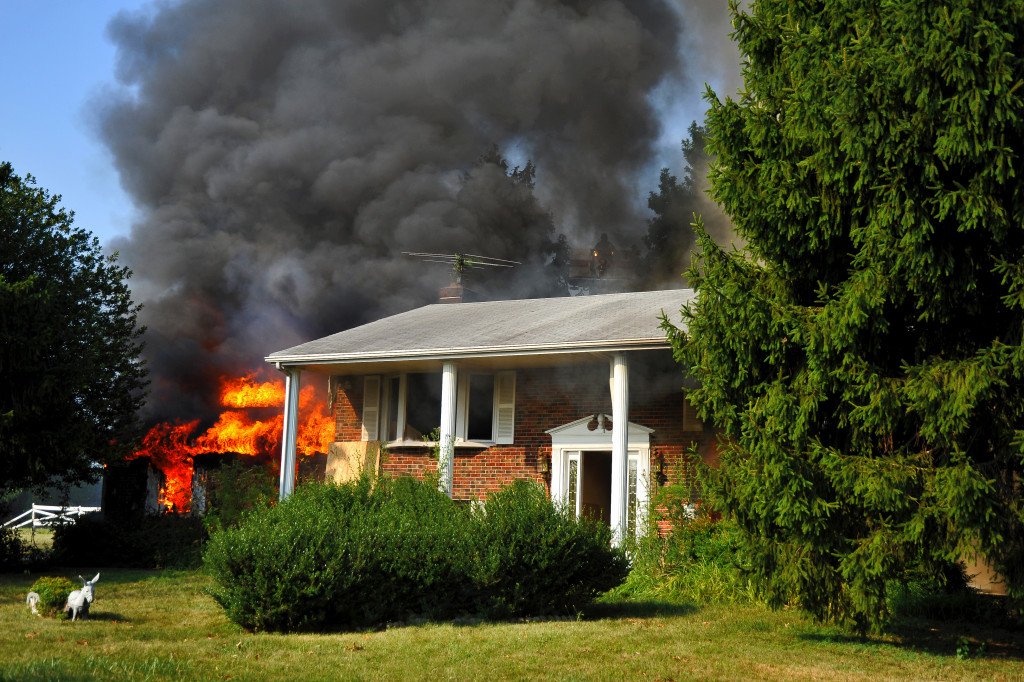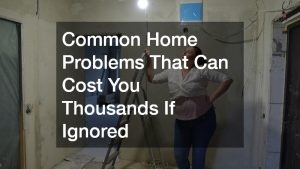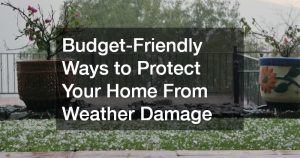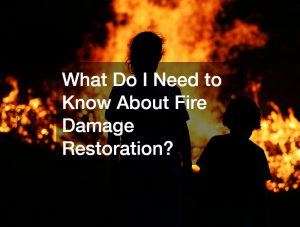A fire in your home is a scary thought. According to the National Fire Protection Association, there are an average of 358,500 home structure fires annually in the United States. These fires cause an estimated $7 billion damage and nearly 3,000 civilian deaths annually. The worse part is that most house fires are preventable. To prevent these fires from happening, you need to know the reasons behind them. Here are the most common house fires in the country.
Cooking Fires
The leading cause of home structure fires is cooking-related accidents. Unattended cooking is the main culprit, so it’s essential never to leave your stovetop alone while cooking. Additionally, grease fires also contribute to this kind of fire.
Grease fires happen when cooking grease gets too hot, often due to a stove or oven being left on for too long or not having proper ventilation. You can put out a grease fire by turning off the heat source and using a fire extinguisher or baking soda to smother the flames. It’s also important to never pour water on a grease fire as it can cause the fire to spread. Additionally, here are some ways to prevent these fires.
Have Sand Around
Water doesn’t work when trying to put out a grease fire. It can even make the fire worse. This is because water will only cause the burning grease to splatter, spreading the fire. So instead, have a bucket of sand nearby to smother the flame.
Don’t Leave the Stove On Unattended
It may seem like a no-brainer, but it’s essential to never leave your stove or oven unattended while cooking. This means checking on food frequently and being mindful of the time it takes for certain dishes to cook. An alarm or timer can also remind you to check on your food.
Proper Ventilation
Grease fires can often happen if there isn’t proper ventilation in the kitchen. This means ensuring your stove and oven have a vent hood to allow steam and smoke to escape while cooking. It’s also essential to clean these vent hoods regularly, as grease buildup can contribute to a grease fire.

Smoking Fires
Fires caused by smoking materials account for nearly 9% of home structure fires in the United States. These can be easily prevented by properly disposing of cigarettes and never leaving lit cigarettes unattended. It’s also essential to have a sturdy ashtray that won’t tip over on any surfaces where smoking may occur.
Heating Fires
Heating equipment, such as furnaces, fireplaces, and space heaters, causes about 4% of home structure fires in the United States. These can be prevented by regularly maintaining heating equipment and keeping flammable materials at least three feet away from these heating sources. It’s also important to never leave space heaters unattended and ensure fireplaces have a sturdy screen to prevent sparks from flying out.
Dust
Not many homeowners know that dust can also be a fire hazard. For example, a buildup of dust in an outlet or on electronics can cause electrical fires. Unfortunately, it’s also reasonably expected for the dust to accumulate in HVAC units. Here are ways to prevent that from happening.
Get Your HVAC Inspected
HVAC inspection is crucial for preventing dust fires. You should get it checked by a professional HVAC service. Additionally, you should get a local fire damper testing service to check it out. They can detect any dust buildup that could lead to a fire. They can also install fire dampers to prevent fire spread through ducts.
Regularly Clean Outlets and Electronics
Dust can quickly accumulate in outlets and electronics, so clean them regularly with a damp cloth or compressed air. It’s also important not to overload your outlets with too many electronic devices, as this can cause overheating.
Unplug Electronics When Not in Use
Dust can accumulate on electronics, especially ones that aren’t used often—unplugging these electronics when not in use can prevent dust buildup and ultimately avoid an electrical fire.
Electrical Fires
Fires caused by electrical problems are another leading cause of house fires. It’s estimated that faulty electric currents cause 5,300 fires. To avoid an electrical fire in your home, never overload outlets or extension cords, and always replace frayed or damaged electrical cords immediately. Additionally, have a professional electrician check your home’s wiring every few years to ensure it meets current safety standards. Finally, don’t forget to unplug small appliances like coffee makers and hair dryers when you’re not using them—even if they’re turned off.
Fire hazards are all around your home, but you can do plenty of things to minimize the risk of a fire. So the next time you’re cooking dinner, doing laundry, or relaxing in front of the TV, take a moment to think about fire safety and how you can prevent a disaster from happening in your home.











